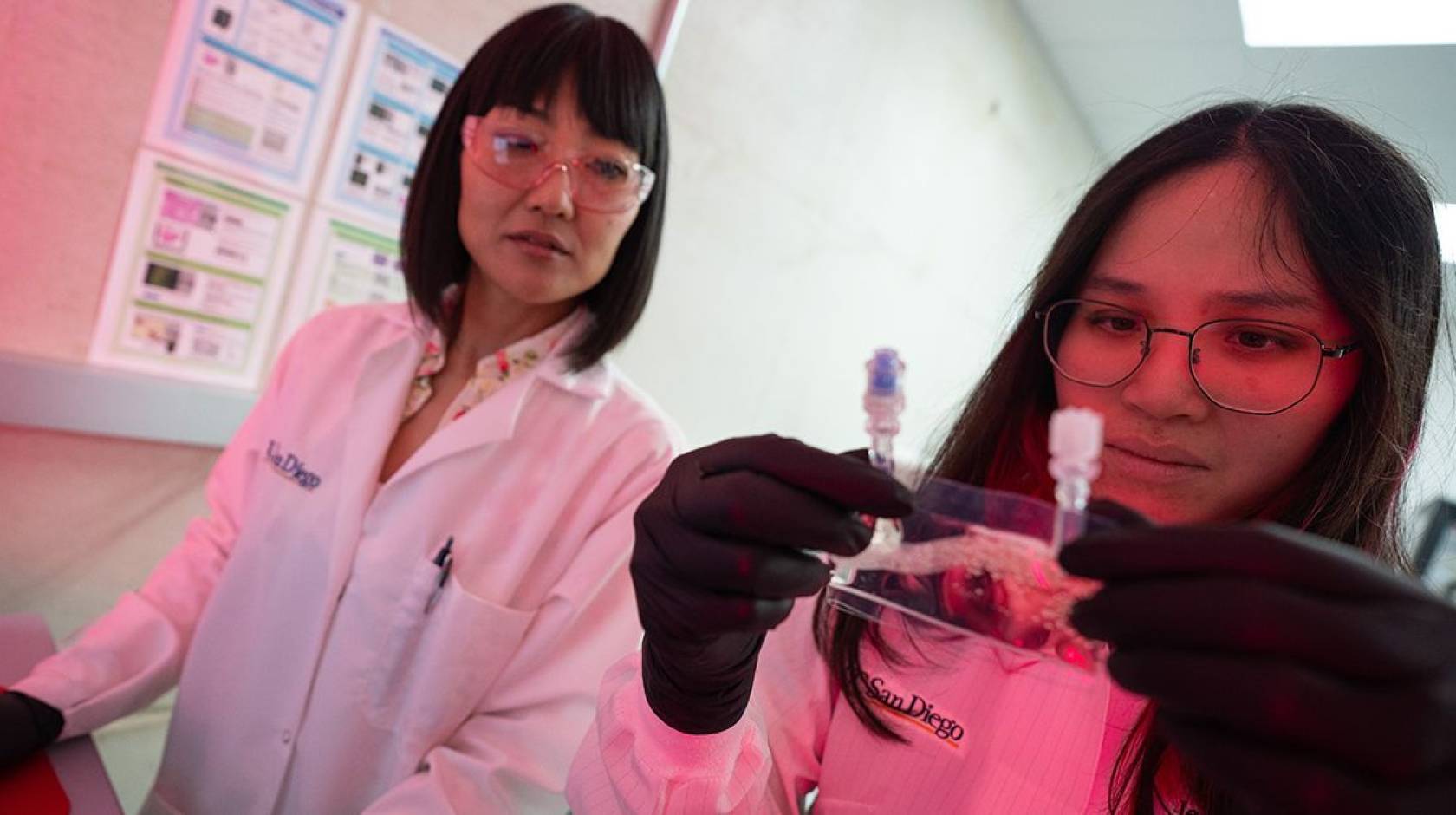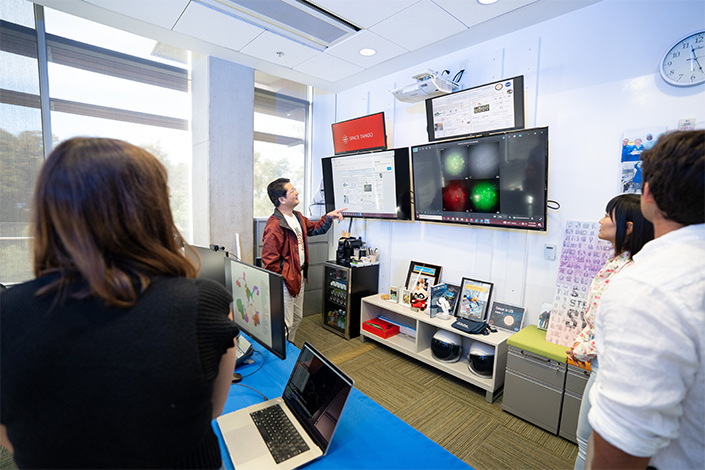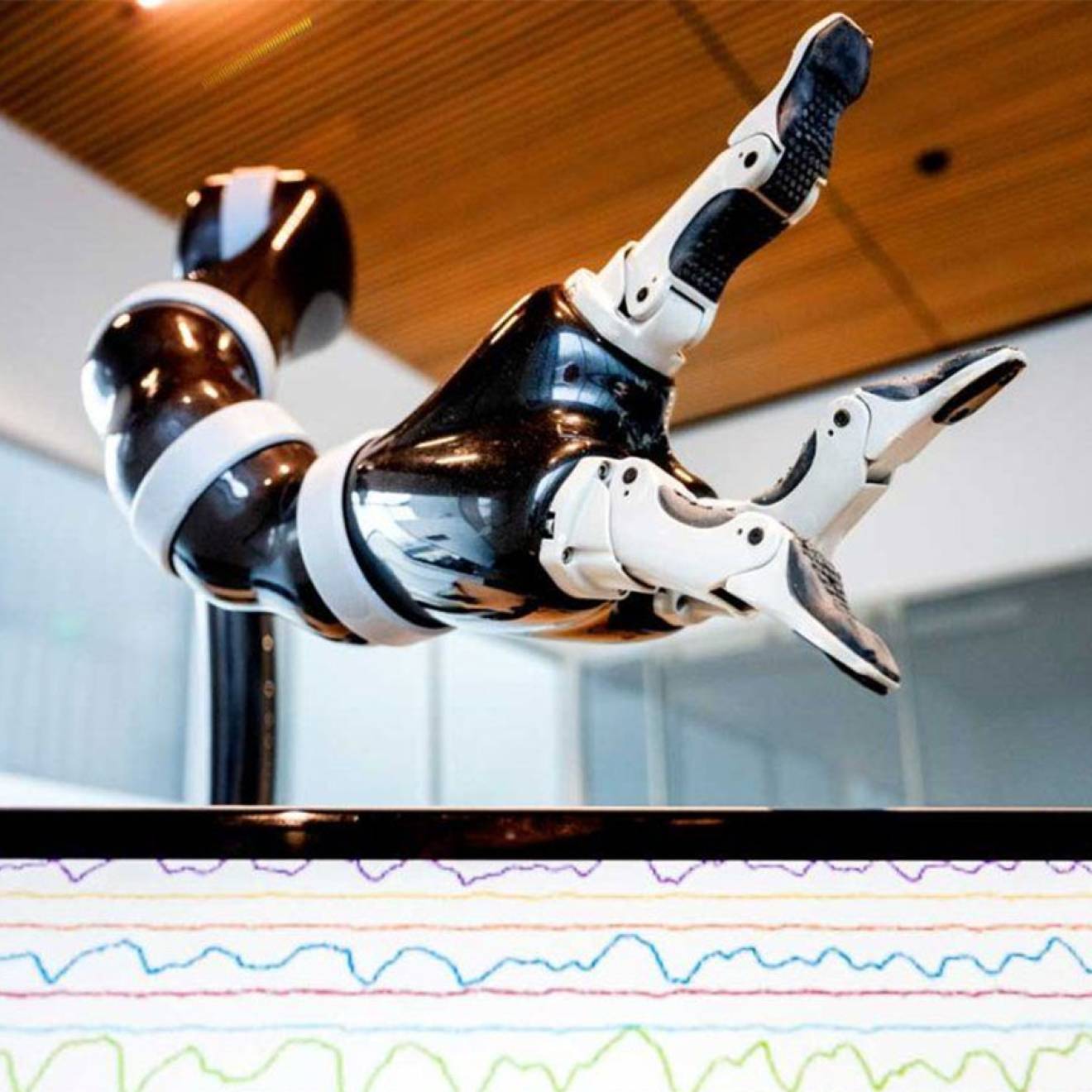Lizelda Lopez, UC San Diego

A new cancer treatment discovered by the University of California, San Diego Sanford Stem Cell Institute (SSCI) and developed by Aspera Biomedicines will undergo testing in outer space this spring — this as researchers prepare to launch a clinical trial of the drug on Earth.
Rebecsinib, an investigational cancer drug slated to begin a Phase 1 clinical trial this year for patients with high-risk myelofibrosis or secondary acute myeloid leukemia, will be tested aboard the International Space Station (ISS) on four of the deadliest cancer types: ovarian cancer, metastatic breast cancer, acute myeloid leukemia and glioblastoma multiforme.
Rebecsinib targets ADAR1, a gene known to drive cancer progression and drug resistance. On prior space missions, the drug showed the ability to halt the growth of cancer organoids, miniature versions of cancerous tumors, offering hope that it could stop disease recurrence and metastasis — thought to be the primary cause of cancer deaths. Rebecsinib holds promise for fighting 20 types of cancer, including triple-negative breast cancer, leukemia and any cancer that involves the gene ADAR1 in its development and progression.

“Microgravity is an extremely stressful environment for cells, accelerating processes like inflammation, aging and cancer progression,” said Catriona Jamieson, M.D., Ph.D., professor and chief of the division of Regenerative Medicine at UC San Diego School of Medicine and SSCI director. “That makes space the perfect place to test how cancer and other age-linked diseases evolve — and how we can stop them. By sending organoids and stem cells to the International Space Station, we’re not just studying disease — we’re compressing decades of biological change into a single month and using those insights to develop better treatments on Earth, faster.”
The Cancer in Low Earth Orbit (CLEO)-4 study is a collaboration between SSCI and Axiom Space. This investigation also involves SSCI’s Integrated Space Stem Cell Orbital Research Center, which uses microgravity to study age-related diseases rapidly. Axiom Space will be conducting its fourth mission to the ISS to perform studies by leading researchers, including those at SSCI.
SSCI’s study of rebecsinib on triple-negative breast cancer tumor organoids aboard Axiom Mission 3 was recognized by NASA Strategic Advisor Lynn Harper as one of only 11 “exceptional” experiments ever performed aboard the ISS — so exceptional, that the results required “extraordinary evidence and third-party review” before entering the next phase of funding and flight opportunities.
On that mission, completed in early 2024, rebecsinib acted as a sort of “cancer kill switch” by halting the growth of ADAR1-expressing breast cancer organoids. The study proved that microgravity is a uniquely accelerating environment for understanding stem cell dysfunction that leads to pre-cancer initiation and loss of immune surveillance against cancer. As of August 2024, Jamieson’s team had completed seven spaceflights with research payloads investigating a variety of stem cell- and cancer-related topics.
These pioneering experiments are made possible by philanthropic support and public investment. In particular, the new rebecsinib payload is supported in part by a $4 million NASA In-Space Production Applications (InSPA) Phase 2 award, of which SSCI received $1 million; and a $3.2 million California Institute for Regenerative Medicine CLIN 1 Late Stage Preclinical Project grant.
Donor Rebecca “Becky” Moores has played a pivotal role in enabling cancer research at UC San Diego for decades, having helped fund the foundational work that led to rebecsinib’s development. “It’s exciting to be part of medical advancements of this caliber,” said Moores. “I never thought that space could play such an important role in advancing cancer therapies.”
“With the support of NASA, philanthropic funders — like Moores — and our partners in commercial spaceflight, this is just the beginning of a long line of exciting and impactful health science advances that will be enabled by space,” said Jamieson. “The time to invest in space science is now.”
This new space study will help guide future clinical studies by identifying which cancers are most vulnerable to rebecsinib — insights that could take decades to gain on Earth. Researchers have determined that cancers triple in size in 10 days in space, a process that could take 10 years terrestrially.
“Cancer doesn’t wait,” Jamieson added. “But in space, neither do we.”

